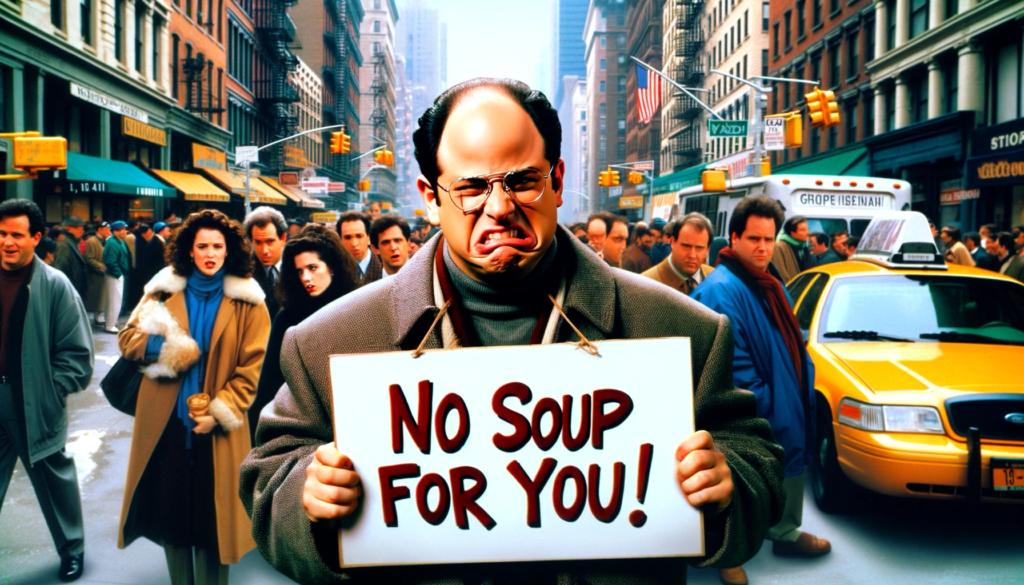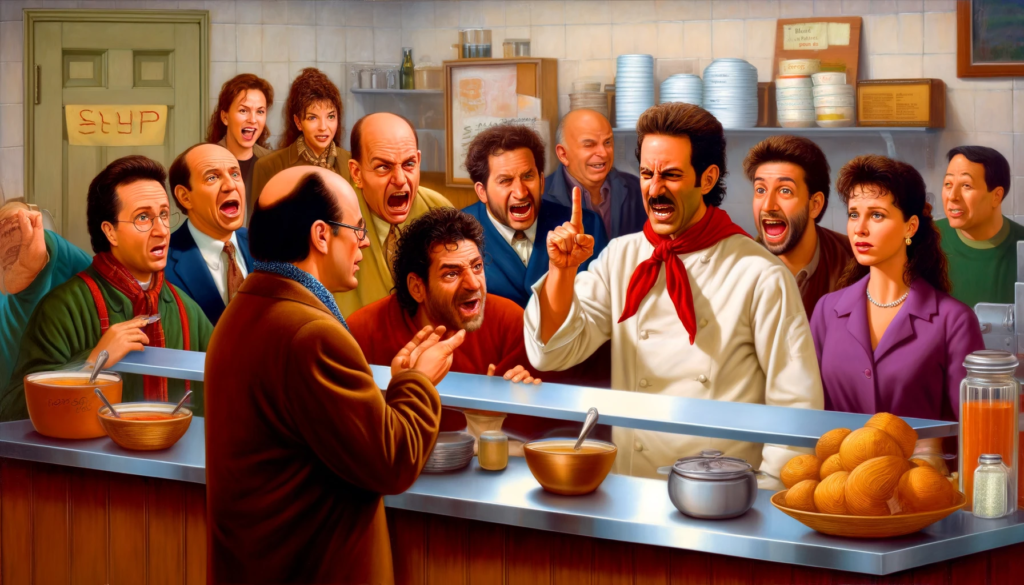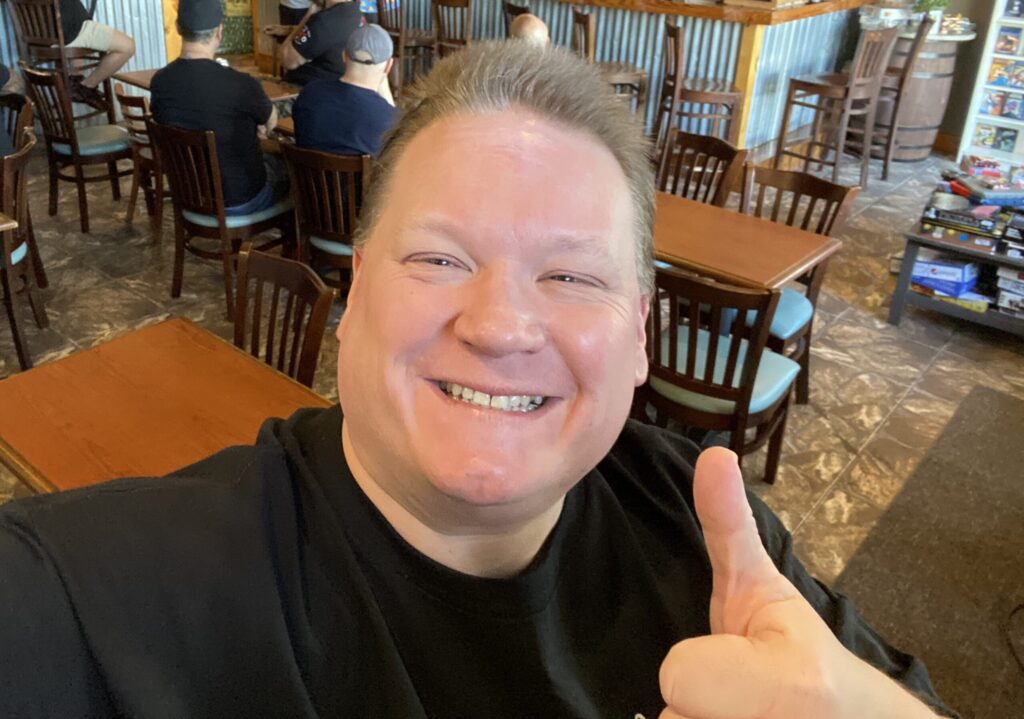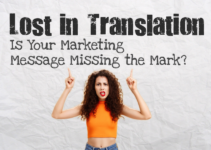Remember the iconic “No Soup for You!” scene from Seinfeld? It’s a classic.
The Soup Nazi, with his strict rules and high standards, created an unforgettable moment in TV history. His approach was harsh but brilliant.
By making his soup exclusive, he made it highly desirable.
The Soup Nazi’s exclusivity tactic is a genius marketing move. He turned a simple bowl of soup into something people were willing to follow strict rules to get. This scene teaches us a valuable lesson about the power of exclusivity in marketing.
In this post, we’ll dive into how the Soup Nazi’s approach can inspire your marketing strategies. We’ll explore why exclusivity works and how you can use it to create buzz and drive demand. Let’s take a page from Seinfeld in your marketing.
The Power of Exclusivity in Marketing
Exclusivity taps into deep psychological triggers. People want what they can’t easily have. It’s human nature. When something is exclusive, it feels special and valuable. This is why exclusivity works so well in marketing.
Fear of missing out (FOMO) is a powerful motivator. Consumers don’t want to be left out. They want to be part of the in-crowd. FOMO drives urgency and immediate action. Limited availability or time-sensitive offers heighten this effect.
Look at luxury brands. They thrive on exclusivity. Think about Rolex watches or Hermès bags. These items aren’t just products; they’re symbols of status and rarity. Limited editions and high price points make them desirable.
Another great example is the tech industry. Companies like Apple create massive buzz with their product launches. By keeping details under wraps and releasing limited quantities, they drive anticipation and demand.
Concerts and events use exclusivity too. VIP tickets and backstage passes offer something regular tickets don’t. This makes fans eager to pay more for the experience. Exclusivity makes your audience feel special and valued. It drives demand and creates a buzz. Use this powerful tactic to make your products or services must-haves. Leverage the power of FOMO to boost your sales and engagement.
Breaking Down the Soup Nazi’s Strategy
The Soup Nazi’s strict rules and limited availability created massive demand. His soup wasn’t just a meal; it was a coveted experience. By making it hard to get, he made it even more desirable.
Scarcity played a big role. The Soup Nazi didn’t have endless soup for everyone. Limited quantities meant people lined up early, hoping to get a taste. Scarcity drives urgency. People don’t want to miss out on something rare.
High standards were another key element. The Soup Nazi demanded perfection. Customers had to follow his rules to the letter. No exceptions. This created an air of exclusivity. Only those who played by his rules got the reward. High standards set a product apart, making it special.
Strict policies were the final piece. “No soup for you!” became iconic because it was a hard line. The Soup Nazi’s policies were clear and non-negotiable. This kind of firm boundary made the soup even more enticing. It was a challenge, and people love challenges.
Despite his harsh demeanor, the Soup Nazi succeeded because of these elements. Scarcity made the soup rare. High standards made it prestigious. Strict policies made it a coveted reward. Together, these factors created a buzz and drove demand.
The lesson? Implement scarcity, uphold high standards, and set clear policies. These tactics can transform a simple product into a must-have item. Just like the Soup Nazi’s legendary soup.
Applying Exclusivity to Your Marketing
Creating a sense of exclusivity in your marketing can elevate your brand and drive demand. Here’s how to do it.
Limited-time offers are a great start. They create urgency. Think about those “24-hour flash sales.” People rush to buy because they don’t want to miss out. Brands like Amazon use this tactic with their Prime Day deals, driving massive sales in a short time.
Membership programs add another layer. Offer special perks to members only. Exclusive access, discounts, or early product releases make people feel valued. Costco thrives on this model. Their memberships offer exclusive savings, driving loyalty and repeat business.
Exclusive content also works wonders. Provide special articles, videos, or webinars that aren’t available to the general public. This approach keeps your audience engaged and coming back for more. Look at Netflix. They create buzz with exclusive shows and movies, keeping subscribers hooked.
Scarcity is powerful too. Limited-edition products or services create a buzz. Nike’s sneaker drops are legendary for this. They release limited quantities, causing fans to line up for hours, eager to snag a pair.
To implement these strategies, start by identifying what you can make exclusive. Is it a product, service, or piece of content? Then, set clear terms. Make the exclusivity known. Promote it through your channels, emphasizing the unique value and limited availability.
These tactics make your offerings more desirable. They create a sense of urgency and importance. By applying exclusivity to your marketing, you can boost demand, increase sales, and build a loyal customer base. Just like the Soup Nazi’s legendary soup.
Balancing Exclusivity and Accessibility
Exclusivity is powerful, but you don’t want to alienate your broader audience. Balance is key. Too much exclusivity can make your brand seem out of reach. Inclusivity keeps your base loyal and engaged.
To maintain this balance, offer exclusivity without being overly restrictive. Make exclusive offers feel special but accessible.
Here are some tips:
Tiered access works well. Offer different levels of exclusivity. For example, VIP members get early access, but everyone else still gets a chance later. Think about concert ticket sales. Pre-sales for fan club members, then general sales for the public.
Special events can also strike a balance. Host exclusive events for top customers but share highlights or recordings with your wider audience. Apple does this with product launches. The live event is exclusive, but the replay is available to all.
Loyalty programs can create inclusivity within exclusivity. Reward long-term customers with special perks. Starbucks’ loyalty program is a great example. Frequent buyers get rewards and special offers, but everyone can join.
Remember, exclusivity should enhance your brand, not limit it. Keep your core audience engaged while offering special perks that make them feel valued. By balancing exclusivity with accessibility, you can build strong, loyal customer relationships without leaving anyone out.
Elevate Your Brand with the Power of Exclusivity
Exclusivity in marketing creates desire and urgency. The Soup Nazi’s tactics showed us that scarcity, high standards, and strict policies drive demand. Balance exclusivity with accessibility to keep your audience engaged and loyal.
Experiment with these tactics in your campaigns. See how limited-time offers, membership programs, and exclusive content can transform your marketing. Make your audience feel special and valued.
Ready to elevate your brand with powerful exclusivity strategies?
Contact me for professional copywriting services that captivate and convert.
ABOUT ROBERT SEAN PASCOE
Robert Sean Pascoe is a direct response copywriter and marketing strategist who works with entrepreneurs worldwide to create advertising and marketing campaigns that MAXIMIZE their profits.
He LOVES Rock N Roll, pro wrestling, Star Wars and pretty much ANYTHING 1980’s.
With 7 years of freelance copywriting experience and a lifetime in sales, Robert knows how to use the power of words to sell virtually anything to anyone, especially if the market has been properly defined (and you BETTER have that right!).
Robert enjoys primarily working with small business owners to sell more of their products and services through the power of direct response advertising and marketing.
He has written sales copy for companies in such diverse niches as Weight Loss Supplements, Skin Care, Male Enhancement, Local Marketing Agencies, Live Event Seminars, Software Developers, Insurance Agencies, Real Estate Brokerages, Marketing Consultants, and many more.








